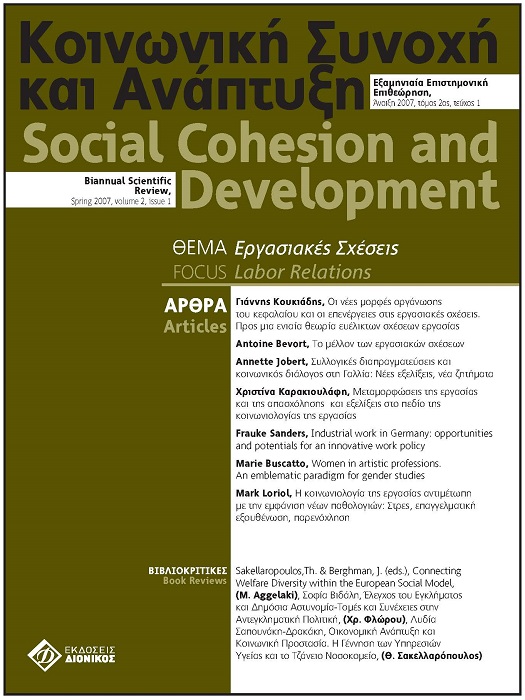Collective bargaining and social dialogue in France: recent developments, new issues

Published:
Apr 13, 2016
Keywords:
Collective bargaining working time negotiations territorial social dialogue France
Abstract
Recently, changes in the processes of social bargaining and social dialogue, such as the decentralization of bargaining, the emergence of new issues and actors, challenge the approaches undertaken thus far for their study. Current analysis focus on the processes of decision making and the methods of state operation using the most recent approaches in political science. Notions such as “political exchange”, “governance” and “cognitive action framework” are being used more frequently than ever as analytical tools for industrial relations research. The paper examines two examples of these new trends; working time which constitutes an important issue within the French bargaining agenda and territorial social dialogue, where public actors are also involved, though indirectly.
Article Details
- How to Cite
-
Jobert, A. (2016). Collective bargaining and social dialogue in France: recent developments, new issues. Social Cohesion and Development, 2(1), 33–42. https://doi.org/10.12681/scad.9037
- Section
- Articles

This work is licensed under a Creative Commons Attribution-NonCommercial-ShareAlike 4.0 International License.
Authors who publish with this journal agree to the following terms:
- Authors retain copyright and grant the journal right of first publication with the work simultaneously licensed under a Creative Commons Attribution Non-Commercial License that allows others to share the work with an acknowledgement of the work's authorship and initial publication in this journal.
- Authors are able to enter into separate, additional contractual arrangements for the non-exclusive distribution of the journal's published version of the work (e.g. post it to an institutional repository or publish it in a book), with an acknowledgement of its initial publication in this journal.
- Authors are permitted and encouraged to post their work online (preferably in institutional repositories or on their website) prior to and during the submission process, as it can lead to productive exchanges, as well as earlier and greater citation of published work (See The Effect of Open Access).
Downloads
Download data is not yet available.


